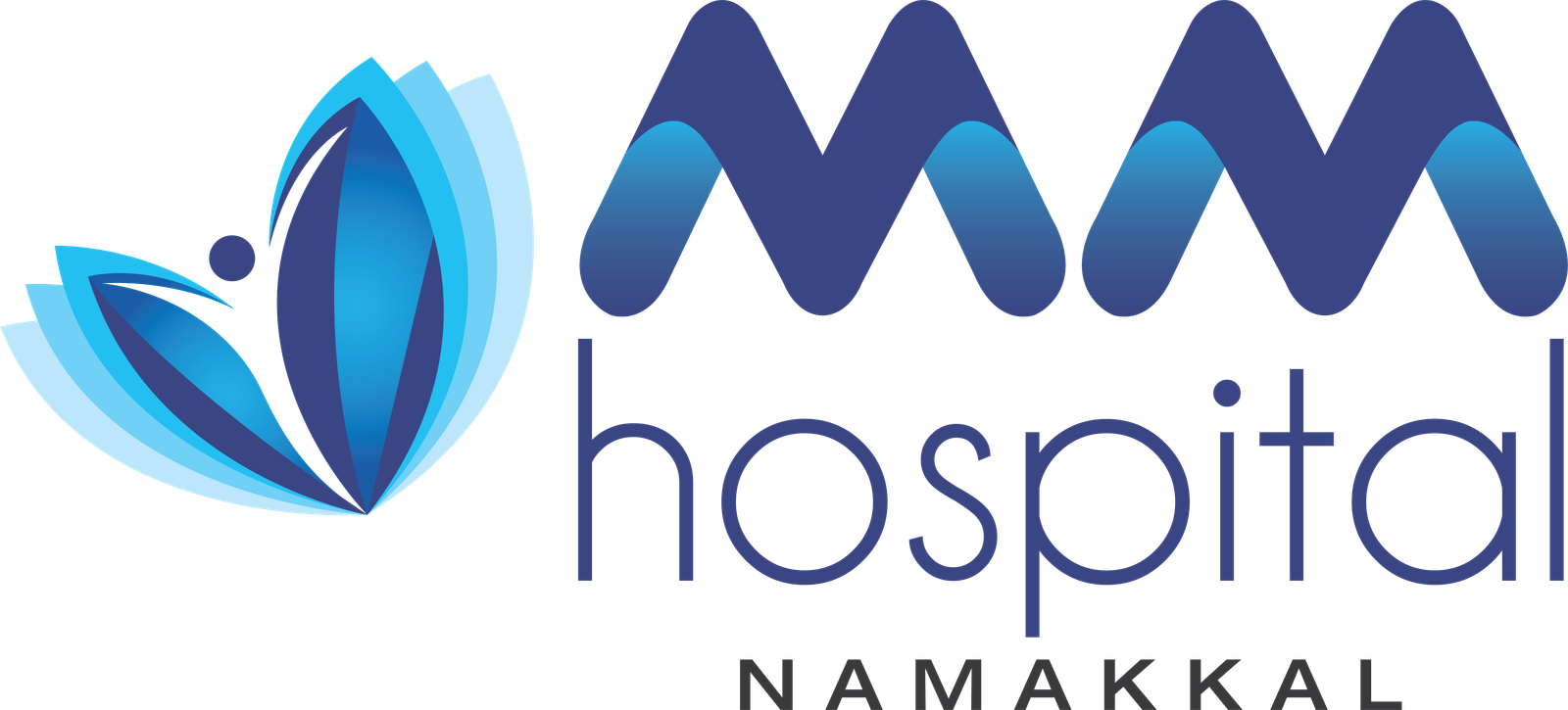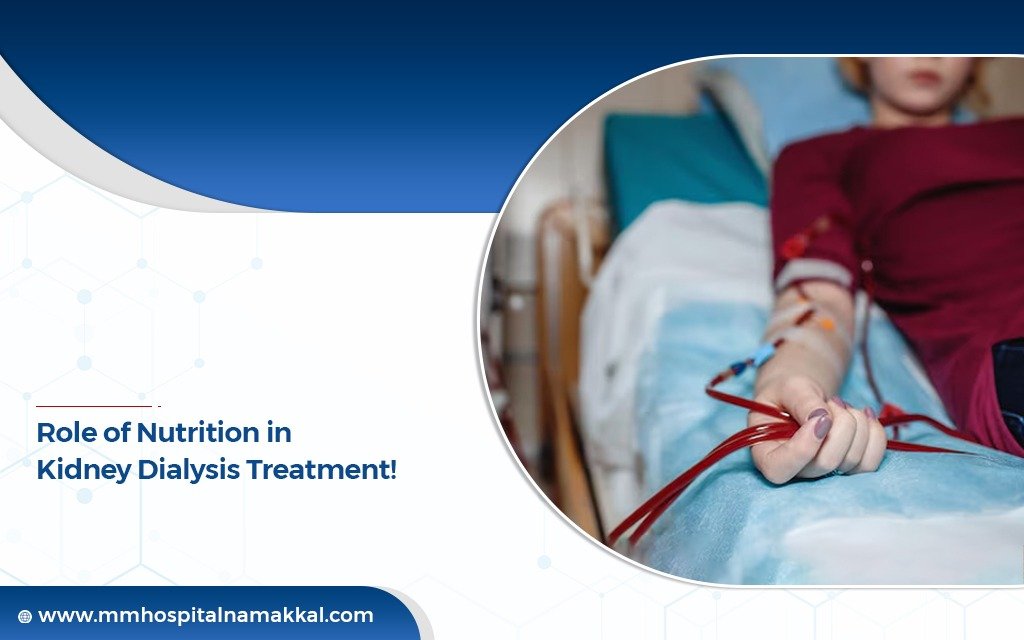Nutrition plays a vital role in the health and treatment success of individuals undergoing Kidney Dialysis. It directly affects how well the dialysis process works, the patient’s overall wellbeing, and long-term health outcomes. At MM Hospital, Namakkal—recognized as the Best Dialysis Treatment Center in Namakkal, Karur—the emphasis on personalized nutritional care ensures that every patient receives holistic support tailored to their unique needs. This integrated approach combines expert Dialysis Treatment with detailed dietary guidance to improve patients’ quality of life.
Why Nutrition Is Essential in Dialysis Treatment

Kidney Dialysis replaces the filtering function of failed kidneys by removing waste, excess fluids, and harmful minerals from the blood. However, dialysis alone cannot address all the complications caused by Kidney Failure. Proper nutrition is essential because it helps maintain energy, prevent harmful build-up of wastes and minerals, and supports the immune system. Without the right diet, dialysis may not work effectively, and patients can experience worsening health issues.
Unique Dietary Needs for Dialysis Patients

The nutritional needs of dialysis patients are complex and require careful balance. Dialysis removes some vital nutrients from the body, especially proteins and certain vitamins. As a result, patients need to increase their intake of high-quality proteins. Lean meats, fish, poultry, and eggs are excellent sources, providing essential amino acids needed to rebuild tissues and maintain muscle strength. Plant proteins are also part of the diet but should be consumed cautiously due to higher phosphorus levels.
Limiting sodium intake is equally important. Excess sodium causes fluid retention, leading to swelling, elevated blood pressure, and strain on the heart. Patients are advised to avoid processed foods, canned soups, salty snacks, and ready-made sauces, replacing added salt with herbs, lemon juice, and approved spices to make meals flavorful without compromising health.
Managing Potassium and Phosphorus Levels
Potassium and phosphorus are minerals that dialysis patients must carefully manage because imbalances can cause severe health problems. Potassium is necessary for nerve and muscle function but can build up to dangerous levels in kidney failure. Foods such as bananas, oranges, potatoes, tomatoes, and spinach are high in potassium and should be limited. Patients are encouraged to choose alternatives like apples, berries, cucumbers, and cabbage and have regular blood tests to adjust potassium intake accordingly.
Phosphorus levels require similar attention. High phosphorus can weaken bones and cause mineral deposits in soft tissues, which can be painful and harmful. Foods rich in phosphorus include dairy products, nuts, chocolate, whole grains, and some sodas. Phosphate binder medications are often prescribed to keep absorption balanced. Calcium intake is managed carefully to avoid bone disease without contributing to harmful calcium deposits.
Fluid Control: Preventing Complications
Fluid management is a daily challenge for dialysis patients. Kidneys normally regulate body fluids, but patients with kidney failure must monitor their fluid intake closely to avoid excess weight gain, swelling, high blood pressure, and breathing problems. Fluids include not only water and drinks but also foods like soups, ice cream, gelatin, and high-water-content fruits. Techniques such as drinking small amounts slowly, using ice chips, and spreading fluid intake evenly throughout the day help patients stay comfortable between dialysis sessions.
Vitamins and Supplementation

Dialysis can result in the loss of water-soluble vitamins, particularly vitamin B complex and vitamin C. Supplementation is often necessary to maintain adequate levels, but must be guided by healthcare professionals to avoid overdosing or causing imbalances. Not all multivitamins are suitable, so patients must follow their doctor’s recommendations carefully
Addressing Dietary Challenges Through Support
Following a restricted diet can be difficult due to taste changes, limited food choices, and the emotional burden of chronic illness. MM Hospital, Namakkal provides comprehensive support, including personalized counseling, meal planning assistance, and education on nutrition management. Patients learn to read food labels, prepare kidney-friendly recipes, and choose suitable foods at restaurants, which helps them maintain adherence without feeling deprived. Family involvement and consideration of cultural preferences are prioritized to make dietary adjustments easier and more acceptable.
Continuous Monitoring and Personalized Care

Laboratory tests are essential to monitor nutritional status and adjust diets based on individual needs. MM Hospital’s multidisciplinary team regularly reviews blood work and clinical signs to tailor diet plans and recommend oral nutritional supplements when required. This personalized care helps reduce hospitalizations, improve muscle mass, and enhance overall wellbeing.
Long-Term Benefits of Optimal Nutrition
Maintaining proper nutrition over time significantly influences survival rates and reduces complications for dialysis patients. Well-nourished patients experience higher energy levels, better heart health, improved immune function, and enhanced mental clarity. Optimal nutrition supports active lifestyles and meaningful social engagement, which are critical for emotional and psychological wellbeing in chronic disease management.
MM Hospital: Excellence in Dialysis and Nutrition Care
MM Hospital, Namakkal stands apart as the Best Dialysis Treatment Center in Namakkal, Karur, for its commitment to comprehensive, patient-centered care. The hospital’s skilled nephrologists, nutritionists, and nursing staff work closely with patients to develop individualized treatment and dietary plans. This collaborative approach respects each patient’s unique health status, lifestyle, and cultural background, ensuring compassionate and effective care at every step.
Conclusion
Nutrition is not just a complementary aspect but a fundamental pillar of successful kidney dialysis treatment. Proper diet, fluid balance, and ongoing support dramatically improve treatment results and patient quality of life. At MM Hospital, Namakkal, expert nutritional management combined with cutting-edge dialysis technology affirms its status as the Best Dialysis Treatment Center in Namakkal, Karur. With dedicated care and personalized guidance, patients can look forward to improved health, renewed strength, and a better future.


